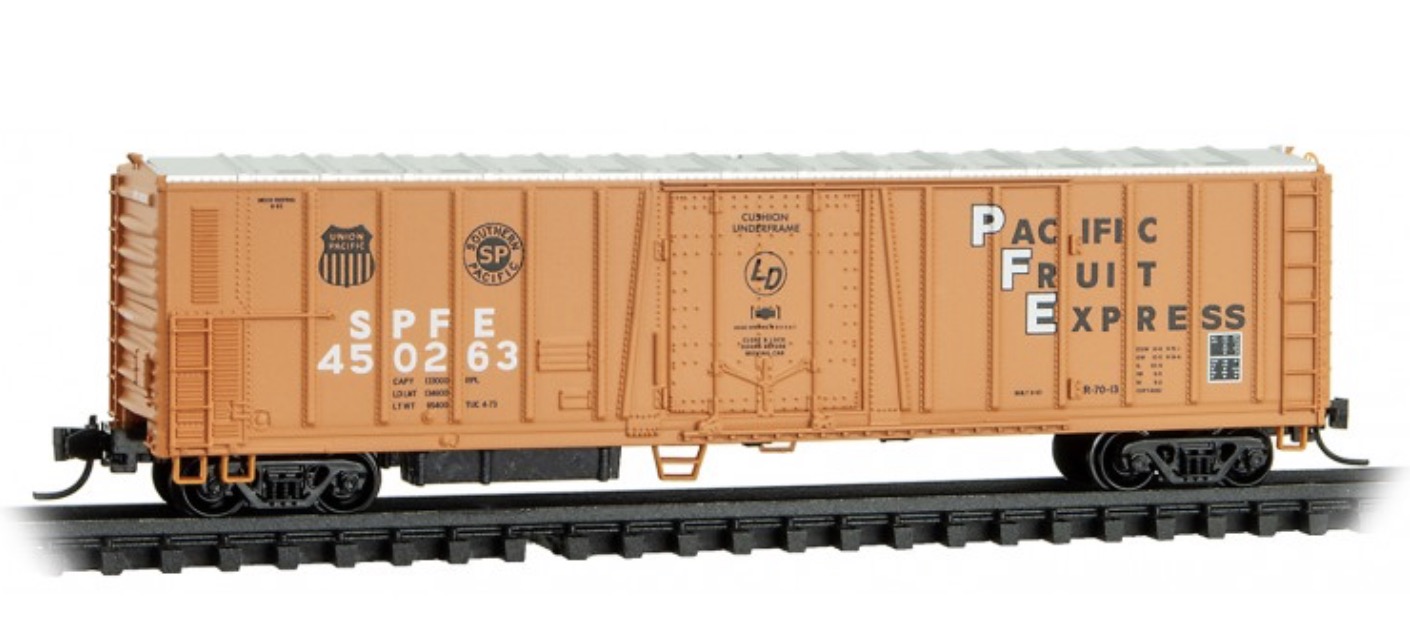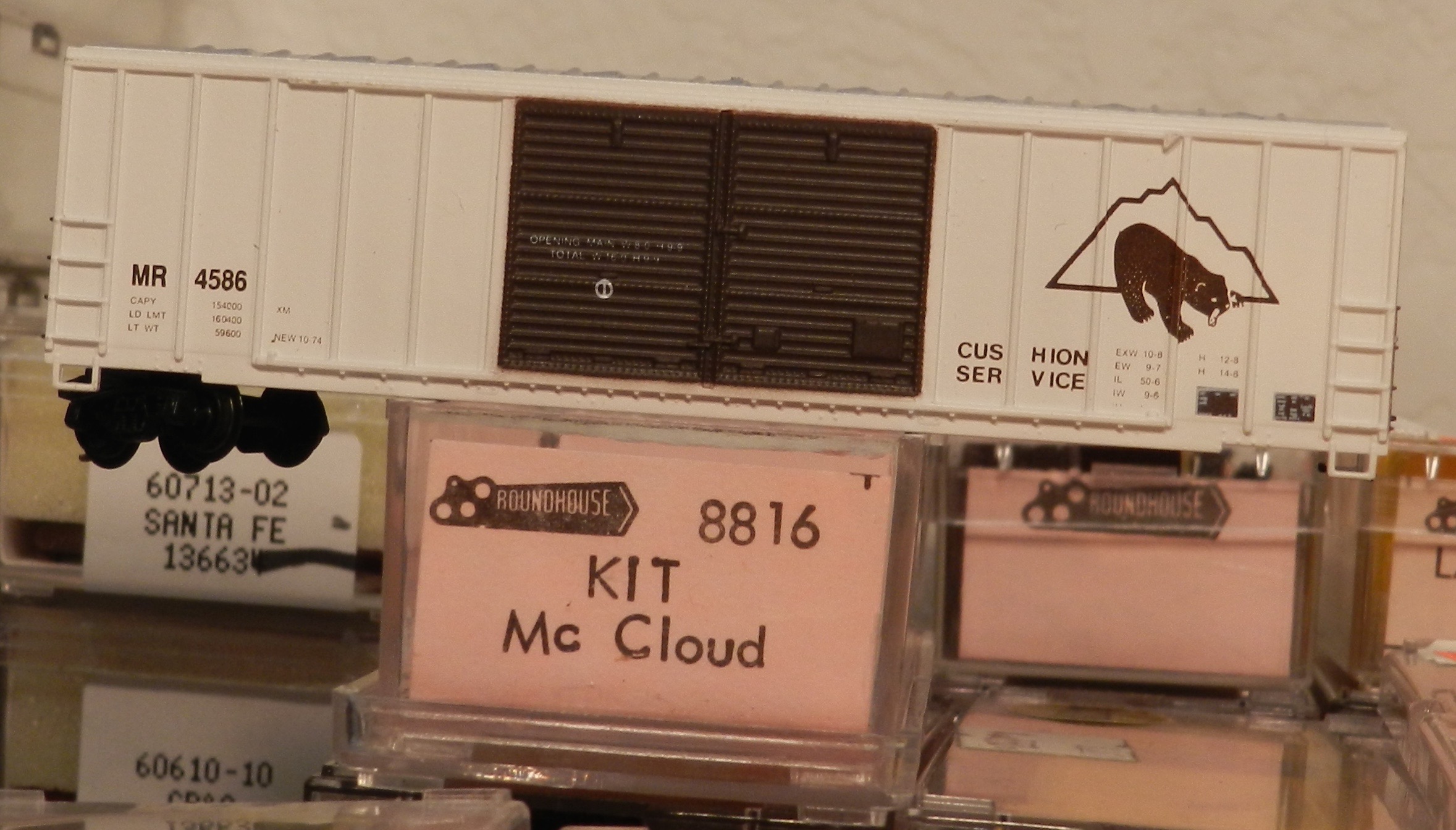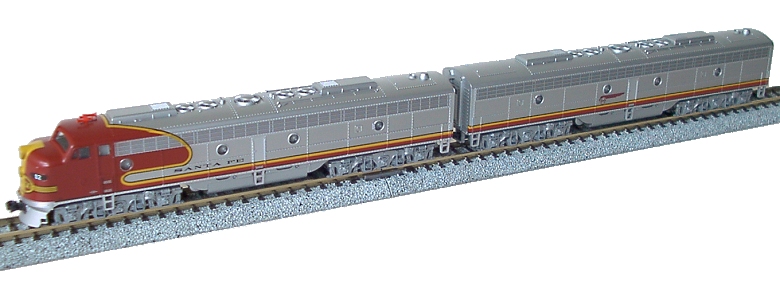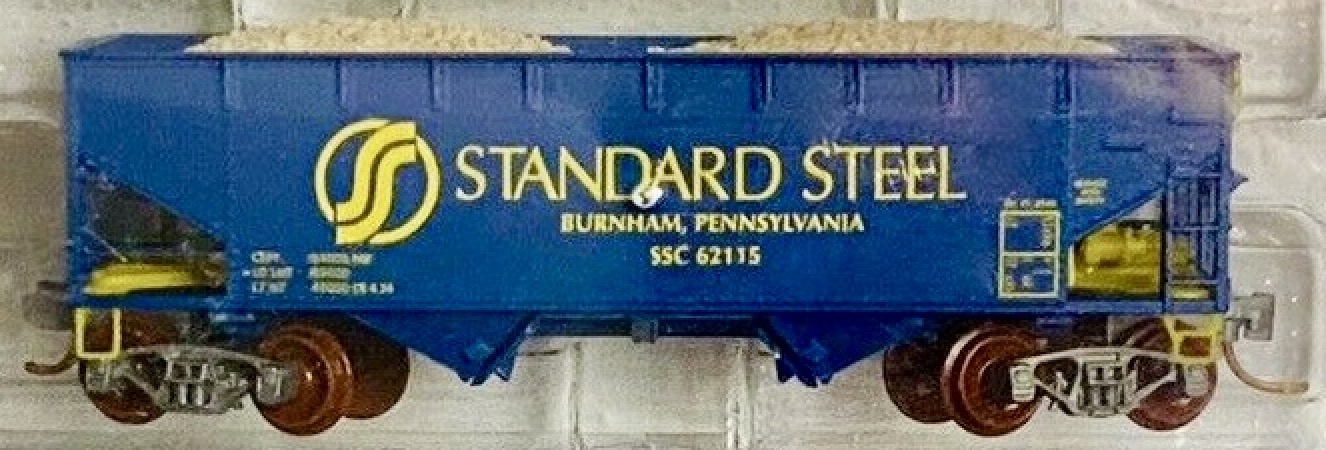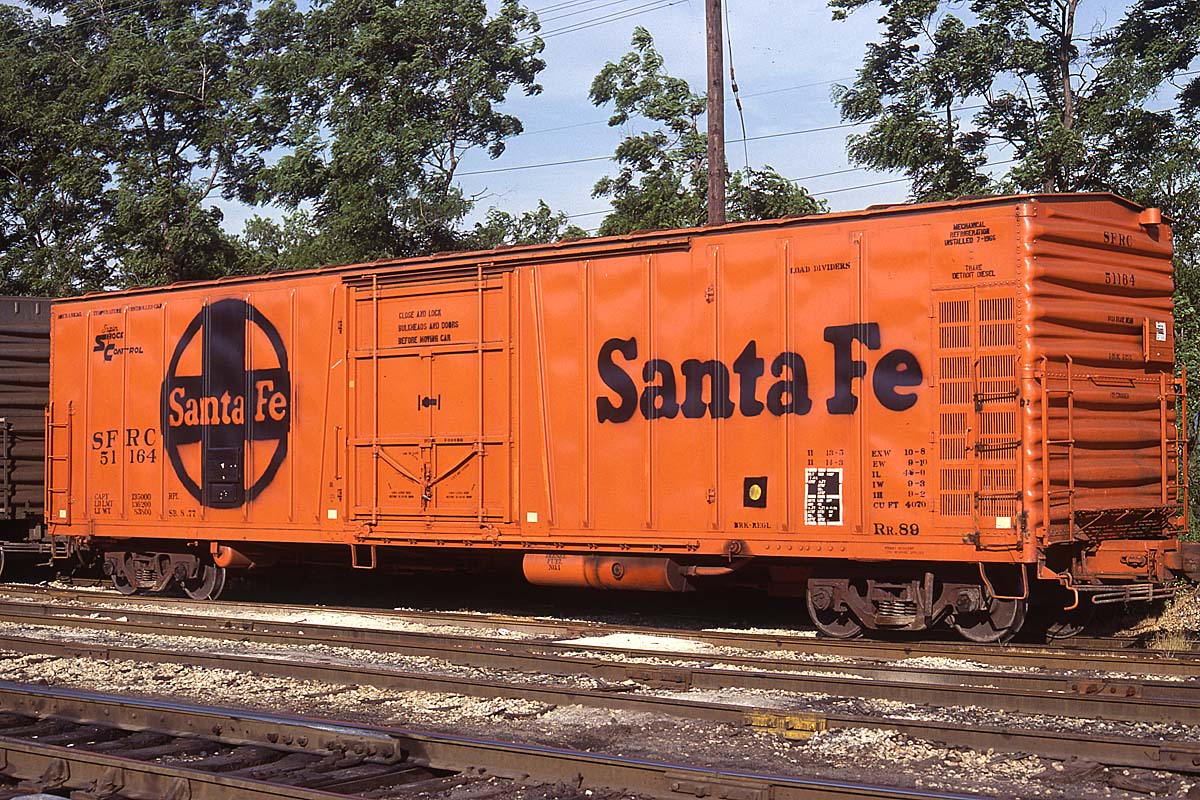Specific Item Information: Built in 1963 to Pacific Car & Foundry design plans, these R-70-13 class mechanical reefers with Barber Roller Bearing trucks were around 4,000 cubic feet in capacity and was 50’ feet in length. They were later transferred to Southern Pacific Fruit Express. It featured a cushioned underframe and load dividers. Pacific Fruit Express, a joint venture between Union Pacific and Southern Pacific, was founded in 1906 and continued jointly until 1978 when the assets were divided between the two railroads.
Model Information: This body style was introduced in late 2023. It is a model of an RR-89 class mechanical reefer built in 1966. The prototype featured a 4,070 cubic foot capacity and featured a shock control underframe.
Prototype History: The RR-89 class was a series of 575 mechanical reefers built in 1966. The cars have a 4,070 cubic foot capacity and featured a shock control underframe. These 65 ton, 48'-0" mechanical refrigerator cars were built by AT&SF Topeka Shops in 1966.
Road Name History: 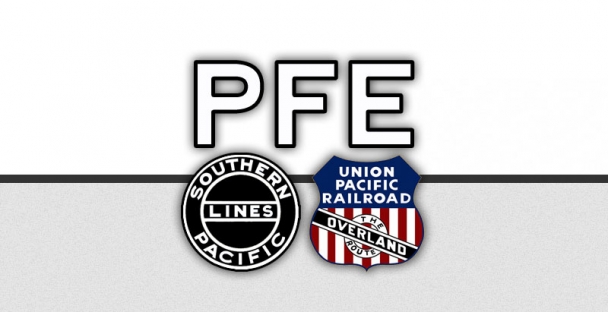 Pacific Fruit Express (reporting mark PFE) was an American railroad refrigerator car leasing company that at one point was the largest refrigerator car operator in the world. The company was founded on December 7, 1906 as a joint venture between the Union Pacific and Southern Pacific railroads. It began operation on October 1, 1907, with a fleet of 6,600 refrigerator cars built by the American Car and Foundry Company (ACF).
Pacific Fruit Express (reporting mark PFE) was an American railroad refrigerator car leasing company that at one point was the largest refrigerator car operator in the world. The company was founded on December 7, 1906 as a joint venture between the Union Pacific and Southern Pacific railroads. It began operation on October 1, 1907, with a fleet of 6,600 refrigerator cars built by the American Car and Foundry Company (ACF).
In 1923, the Western Pacific Railroad joined the venture by leasing its own, brand new fleet of 2775 reefers to PFE. They were painted in standard PFE colors with only WP heralds on the cars instead of the paired UP-SP markings. The WP cars were all retired by the late 1950s, among the last wooden reefers in PFE's fleet. WP ended its partnership with PFE in late 1967 and joined Fruit Growers Express instead.
PFE's assets were divided between the UP and SP when the company was split on April 1, 1978. It is now a UP subsidiary.

In 1923, the Western Pacific Railroad joined the venture by leasing its own, brand new fleet of 2775 reefers to PFE. They were painted in standard PFE colors with only WP heralds on the cars instead of the paired UP-SP markings. The WP cars were all retired by the late 1950s, among the last wooden reefers in PFE's fleet. WP ended its partnership with PFE in late 1967 and joined Fruit Growers Express instead.
PFE's assets were divided between the UP and SP when the company was split on April 1, 1978. It is now a UP subsidiary.
Brand/Importer Information: Micro-Trains is the brand name used by both Kadee Quality Products and Micro-Trains Line. For a history of the relationship between the brand and the two companies, please consult our Micro-Trains Collector's Guide.
Manufacturer Information:  Micro-Trains Line split off from Kadee Quality Products in 1990. Kadee Quality Products originally got involved in N-Scale by producing a scaled-down version of their successful HO Magne-Matic knuckle coupler system. This coupler was superior to the ubiquitous 'Rapido' style coupler due to two primary factors: superior realistic appearance and the ability to automatically uncouple when stopped over a magnet embedded in a section of track. The success of these couplers in N-Scale quickly translated to the production of trucks, wheels and in 1972 a release of ready-to-run box cars.
Micro-Trains Line split off from Kadee Quality Products in 1990. Kadee Quality Products originally got involved in N-Scale by producing a scaled-down version of their successful HO Magne-Matic knuckle coupler system. This coupler was superior to the ubiquitous 'Rapido' style coupler due to two primary factors: superior realistic appearance and the ability to automatically uncouple when stopped over a magnet embedded in a section of track. The success of these couplers in N-Scale quickly translated to the production of trucks, wheels and in 1972 a release of ready-to-run box cars.
Micro-Trains Line Co. split off from Kadee in 1990 to form a completely independent company. For this reason, products from this company can appear with labels from both enterprises. Due to the nature of production idiosyncrasies and various random factors, the rolling stock from Micro-Trains can have all sorts of interesting variations in both their packaging as well as the products themselves. When acquiring an MTL product it is very important to understand these important production variations that can greatly enhance (or decrease) the value of your purchase.
Please consult our Micro-Trains Collector's Guide

Micro-Trains Line Co. split off from Kadee in 1990 to form a completely independent company. For this reason, products from this company can appear with labels from both enterprises. Due to the nature of production idiosyncrasies and various random factors, the rolling stock from Micro-Trains can have all sorts of interesting variations in both their packaging as well as the products themselves. When acquiring an MTL product it is very important to understand these important production variations that can greatly enhance (or decrease) the value of your purchase.
Please consult our Micro-Trains Collector's Guide
Item created by: CNW400 on 2024-04-30 17:58:40. Last edited by CNW400 on 2024-04-30 17:58:41
If you see errors or missing data in this entry, please feel free to log in and edit it. Anyone with a Gmail account can log in instantly.
If you see errors or missing data in this entry, please feel free to log in and edit it. Anyone with a Gmail account can log in instantly.


